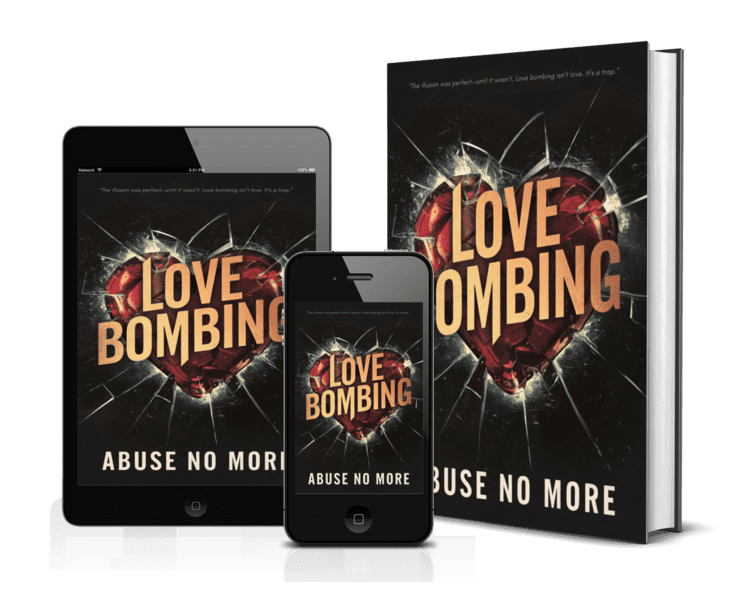Am I at Risk of Attracting Narcissists? 10 Question Quiz
- Home
- Am I at Risk of Attracting Narcissists? 10 Question Quiz

🚨 Do toxic people seem to gravitate toward you?
🚨 Have you been in multiple relationships where you felt used, manipulated, or drained?
🚨 Do you give and give—only to get walked all over?
💥 If any of that sounds familiar, you might be unknowingly attracting narcissists. 💥
But it’s NOT your fault. Narcissists aren’t drawn to people who are weak—they’re drawn to people who are strong but don’t know their own worth.
🔥 This quiz is designed to help you uncover patterns that might be making you a target for toxic relationships—so you can break the cycle and protect yourself.
Answer honestly—this is about awareness, not blame.
Am I at Risk of Attracting Narcissists? 10 Question Quiz
🚨 QUESTION 1: Do you put others’ needs ahead of your own—often to your own detriment?
❌ YES – I always prioritize other people’s happiness, even if it exhausts me.
❌ MAYBE – I try to balance my needs and others’, but it’s not always easy.
❌ NO – I make sure my needs are met before overextending myself.
📝 If you answered “YES,” you might have an overdeveloped sense of responsibility—something narcissists exploit.
🚨 QUESTION 2: Do you struggle with setting boundaries?
❌ YES – I feel guilty saying “no” and often let people push me past my limits.
❌ MAYBE – I can set boundaries, but I don’t always enforce them.
❌ NO – I have strong boundaries and don’t feel bad about holding them.
📝 If you answered “YES,” weak boundaries make you an easy target for manipulation.
🚨 QUESTION 3: Do you attract emotionally intense or “high-maintenance” people?
❌ YES – I always seem to find people who are overly dramatic, demanding, or unstable.
❌ MAYBE – I sometimes end up in emotionally exhausting relationships.
❌ NO – My relationships are generally balanced and healthy.
📝 If you answered “YES,” narcissists are drawn to people who tolerate emotional chaos.
🚨 QUESTION 4: Do you second-guess yourself often?
❌ YES – I doubt my decisions and seek reassurance from others.
❌ MAYBE – I sometimes question myself, but I trust my instincts most of the time.
❌ NO – I trust my gut and don’t need outside validation.
📝 If you answered “YES,” self-doubt makes it easier for narcissists to gaslight and manipulate you.
🚨 QUESTION 5: Do you feel responsible for “fixing” people?
❌ YES – I believe people can change, and I try to help them become better.
❌ MAYBE – I want to help people, but I’m learning that I can’t fix them.
❌ NO – I believe people have to take responsibility for their own growth.
📝 If you answered “YES,” you may have a rescuer mentality—narcissists love finding “fixers” to exploit.
🚨 QUESTION 6: Do you ignore red flags and give people too many chances?
❌ YES – I tend to justify or overlook toxic behavior instead of walking away.
❌ MAYBE – I see red flags, but sometimes I hesitate to act on them.
❌ NO – I trust my instincts and remove myself from bad situations quickly.
📝 If you answered “YES,” ignoring warning signs keeps you stuck in toxic cycles.
🚨 QUESTION 7: Do you fear abandonment or rejection?
❌ YES – I sometimes stay in bad situations because I don’t want to be alone.
❌ MAYBE – I have some fear of abandonment, but I try not to let it control me.
❌ NO – I’d rather be alone than in a bad relationship.
📝 If you answered “YES,” fear of being alone can make you more vulnerable to narcissistic abuse.
🚨 QUESTION 8: Do you struggle with self-worth?
❌ YES – I sometimes don’t feel good enough, even when people say I am.
❌ MAYBE – I have moments of self-doubt, but I try to build my confidence.
❌ NO – I know my worth and don’t let others define it.
📝 If you answered “YES,” low self-esteem makes it easier for narcissists to control and manipulate you.
🚨 QUESTION 9: Do you apologize even when you’re not at fault?
❌ YES – I say “sorry” even when I know I haven’t done anything wrong.
❌ MAYBE – I apologize to keep the peace, but I try to stand my ground.
❌ NO – I only apologize when I’m actually in the wrong.
📝 If you answered “YES,” over-apologizing is a sign of conditioning from past emotional manipulation.
🚨 QUESTION 10: Do you feel drained after interacting with certain people—but still feel obligated to keep them in your life?
❌ YES – Some relationships exhaust me, but I struggle to walk away.
❌ MAYBE – I sometimes feel drained, but I’m learning to set limits.
❌ NO – If someone consistently drains me, I distance myself.
📝 If you answered “YES,” emotional vampires (including narcissists) may be feeding off your energy.
Quiz Results: What Do Your Answers Mean?
✅ If You Answered “YES” to 3-5 Questions: 🚨 Caution: Early Warning Signs 🚨
You may have some patterns that make you more vulnerable to toxic relationships, but the fact that you recognize them is a huge step forward. Narcissists are drawn to people who are kind, giving, and empathetic—which is a strength, not a weakness. However, without strong boundaries, these qualities can be exploited by manipulative individuals.
🔹 What to Do Next:
- Start practicing self-awareness when new people enter your life.
- Strengthen your boundary-setting skills so toxic people don’t take advantage of you.
- Pay attention to red flags early and trust your instincts.
⚠️ If You Answered “YES” to 6-8 Questions: High Risk – You’re in the Danger Zone ⚠️
Your results indicate that you may have deep-rooted patterns that attract toxic individuals, possibly due to past conditioning or relationships. Narcissists may see you as an easy target because of your compassion, loyalty, or fear of confrontation. If this sounds familiar, you’re not alone—but it’s time to take action.
🔹 What to Do Next:
- Evaluate the relationships in your life. Are there people who make you feel drained, guilty, or small?
- Learn how to say “no” without guilt and recognize when someone is testing your boundaries.
- Start using the IMC Method™ (Identify, Minimize, Control) to break free from toxic patterns.
❌ If You Answered “YES” to 9-10 Questions: Extreme Risk – Narcissist Magnet Alert! ❌
Your results suggest that you are highly susceptible to narcissistic relationships—whether in dating, friendships, or even family dynamics. This doesn’t mean you’re weak—it means you’ve likely been conditioned to tolerate toxic behavior. The good news? You can change this pattern starting today.
🔹 What to Do Next:
- Break the cycle by learning to recognize love bombing, gaslighting, and other manipulation tactics.
- Strengthen your self-worth—you do NOT need to prove your value to anyone who takes advantage of you.
- Go no-contact with people who repeatedly cross your boundaries or make you feel drained.
- Join our newsletter for ongoing support, free tools, and expert insights on how to protect yourself.
🔥 Remember: Narcissists don’t target you because you’re weak—they target you because you’re strong, but unaware of your own power. The moment you realize your worth, set boundaries, and refuse to tolerate toxic behavior, they lose their hold on you. 🚀🔥
What Next? How the IMC Method™ Can Help
💥 The fact that you’re recognizing these patterns means you’re already taking back your power. 💥
Narcissists don’t go after just anyone—they specifically seek out kind, giving, empathetic people who don’t yet recognize their own worth.
🔥 But the moment you do? They lose their power over you. 🔥
That’s where the IMC Method™ (Identify, Minimize, Control) comes in:
✅ Identify – Recognize the patterns that make you a target.
✅ Minimize – Set strong boundaries and stop giving unlimited chances.
✅ Control – Take back your life, prioritize your well-being, and refuse to be drained by toxic people.
💥 You deserve healthy, reciprocal relationships—not emotional black holes.
7 Frequently Asked Questions About the “Am I at Risk of Attracting Narcissists?” Quiz
1️⃣ Is this quiz only for romantic relationships?
No! Narcissists can show up in friendships, family, work, and even social circles. If you’ve ever felt drained, manipulated, or undervalued in any relationship, this quiz can help you spot patterns—no matter the type of connection.
2️⃣ What if I answered “YES” to a lot of questions? Am I doomed?
Absolutely not! 🚀 Self-awareness is your biggest weapon against manipulation. If you recognize toxic patterns, you can change them. The IMC Method™ (Identify, Minimize, Control) gives you concrete steps to stop attracting narcissists and start building healthy, reciprocal relationships.
3️⃣ Does answering “YES” mean I’m weak?
No way. 💪 Narcissists don’t target weak people—they target strong, giving, empathetic people who haven’t learned to prioritize their own needs. Recognizing this is a sign of strength, not weakness.
4️⃣ Can I take this quiz again later?
Yes! In fact, take it again in a few months to see how your answers change as you work on setting boundaries and recognizing red flags. Growth is a process, and every step forward counts.
5️⃣ I don’t want to hurt people—how do I set boundaries without feeling guilty?
Setting boundaries isn’t about hurting others—it’s about protecting yourself. If someone gets upset when you enforce a boundary, that’s a red flag 🚩. Healthy people respect limits. Narcissists? Not so much.
6️⃣ I know someone who keeps falling for narcissists—can I share this quiz with them?
Absolutely! Share the quiz with friends, family, or anyone who might need a wake-up call. You never know—it could be the first step toward breaking a toxic cycle. 💥
7️⃣ What’s the next step after taking the quiz?
Now that you’ve identified patterns, it’s time to do something about it. Start by:
✅ Learning more about the IMC Method™ (Identify, Minimize, Control) to stop attracting toxic people.
✅ Signing up for our newsletter for exclusive insights, tools, and recovery strategies.
✅ Checking out The Love Bombing Book—because understanding manipulation is the first step to escaping it.
Love Bombing: The Basics – How Narcissists Hook You & Why It Feels So Real
💥 Ever met someone who seemed too good to be true—because they were? That’s love bombing, the narcissist’s favorite bait-and-trap technique.
Love Bombing: The Basics is your essential guide to understanding how narcissists overwhelm you with affection, attention, and promises—only to pull the rug out once they’ve got you hooked. This book breaks down the science, psychology, and strategy behind love bombing, helping you see through the illusion before it’s too late.
What You’ll Learn Inside:
✅ The Psychological Tricks Behind Love Bombing – How narcissists mirror your desires to feel like “The One.”
✅ Why It Feels Like a Soulmate Connection – The brain chemistry that makes love bombing addictive.
✅ How Love Bombing Leads to Narcissistic Abuse – Why the adoration phase always comes with a crash.
✅ Red Flags You Can’t Ignore – How to spot love bombing before you fall for it.
✅ How to Break Free & Heal – Practical steps to reclaim your power and avoid future traps.
💔 Love bombing isn’t love—it’s manipulation wrapped in fantasy. If you’ve ever wondered “Was it real?”—this book will give you the answers you need.
📖 Start reading now and learn how to identify, minimize, and control love bombing before it controls you. 🚀🔥
💥 You’re already taking back your power—keep going! 💥 🚀











